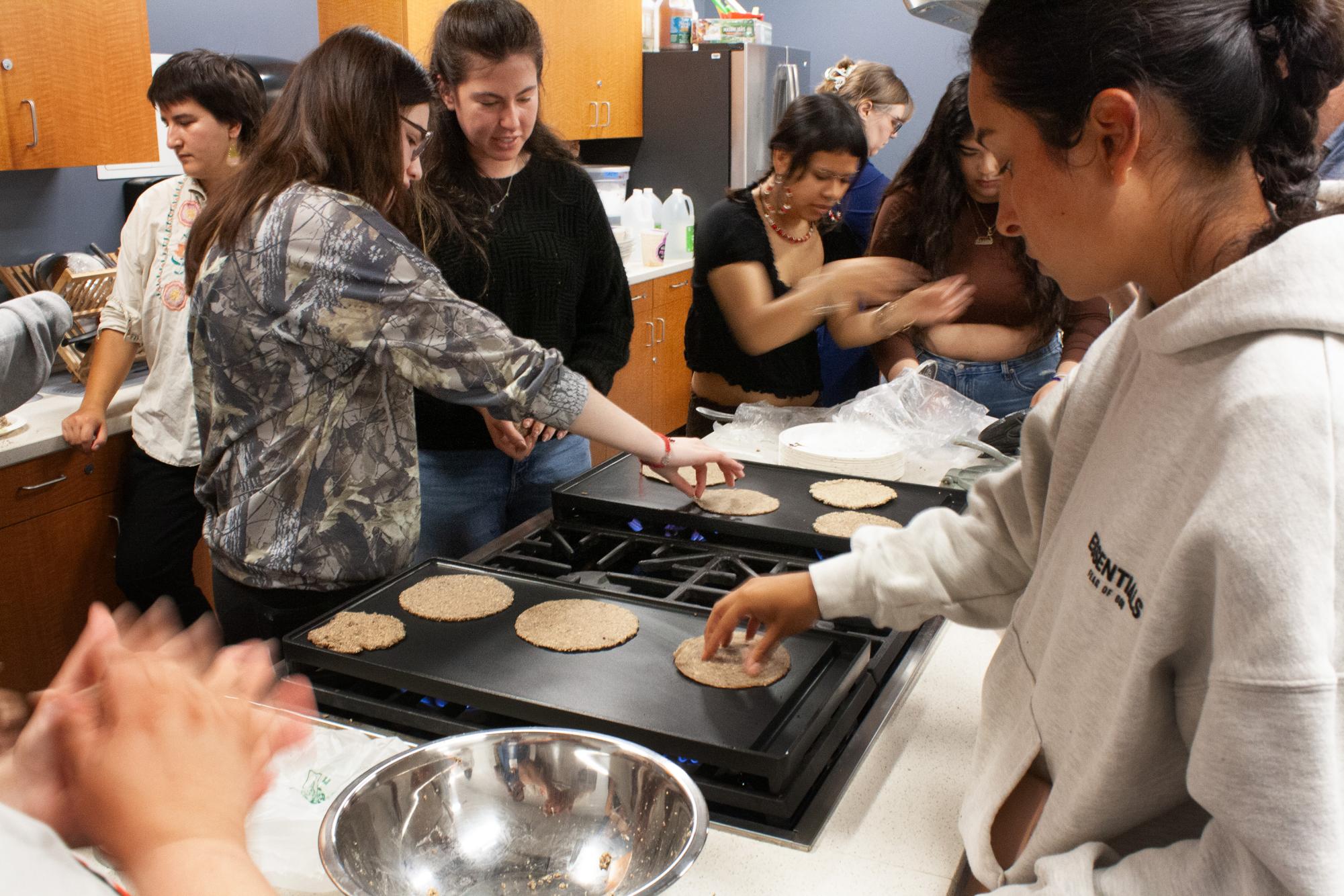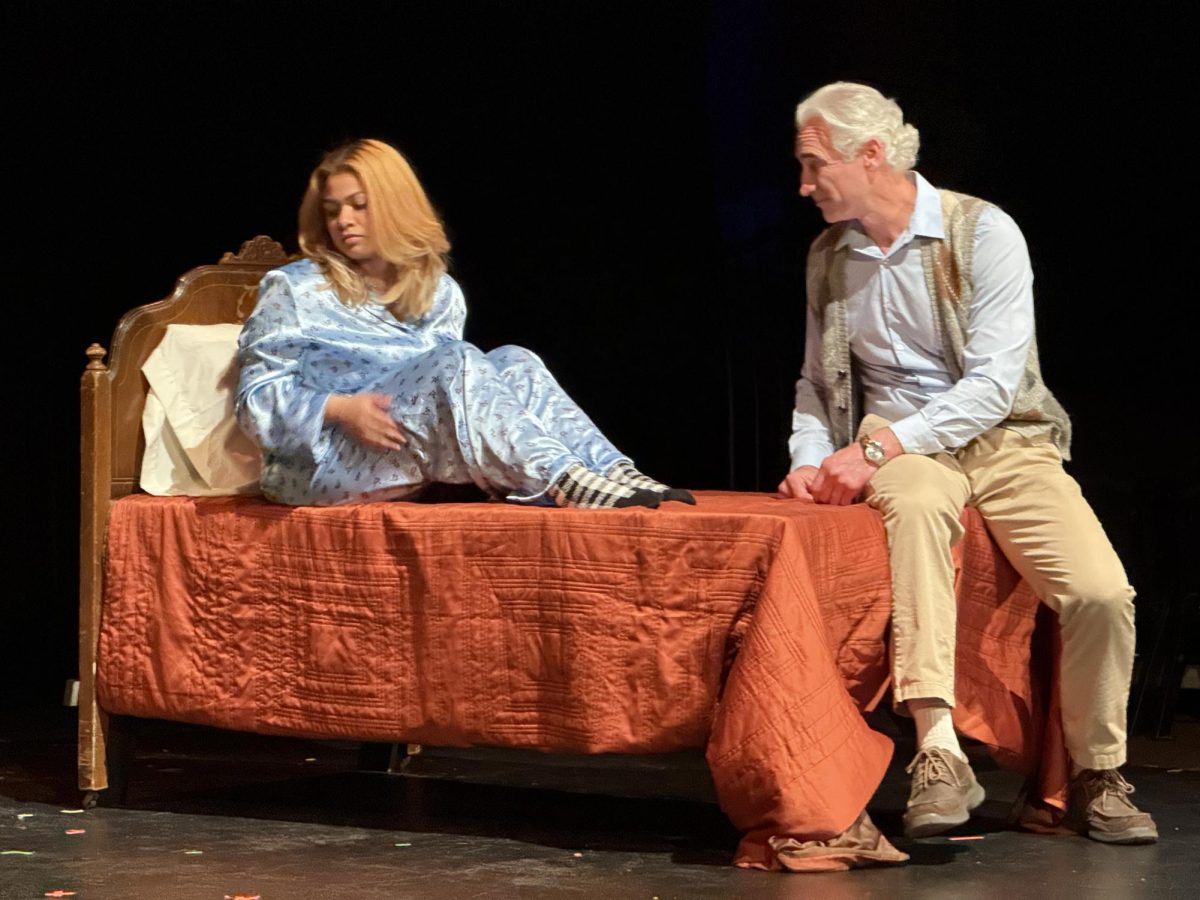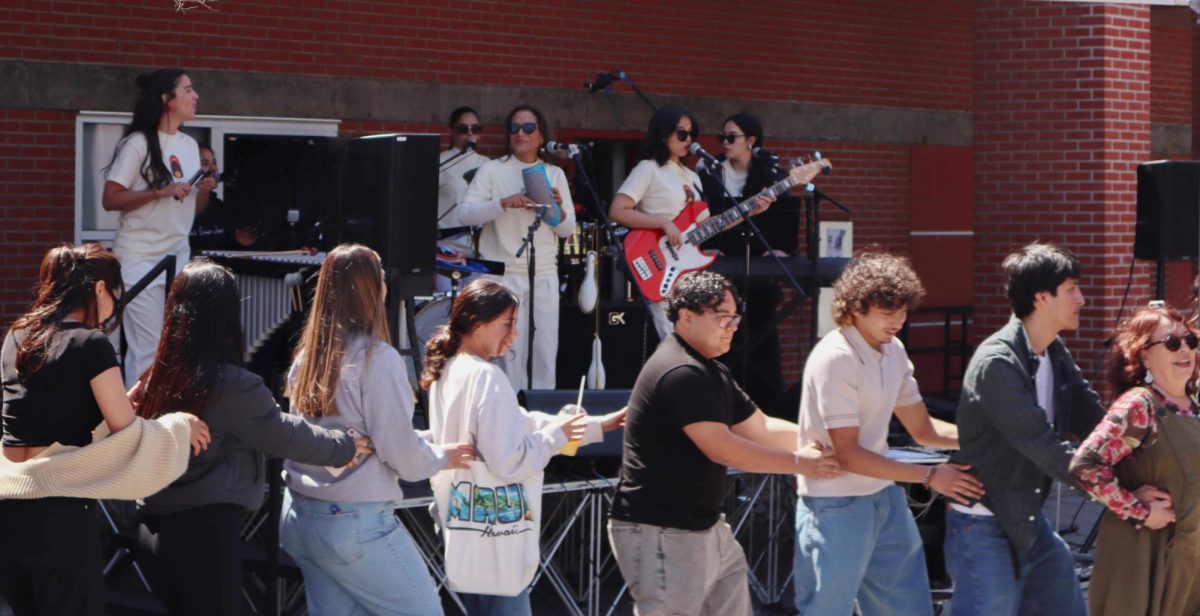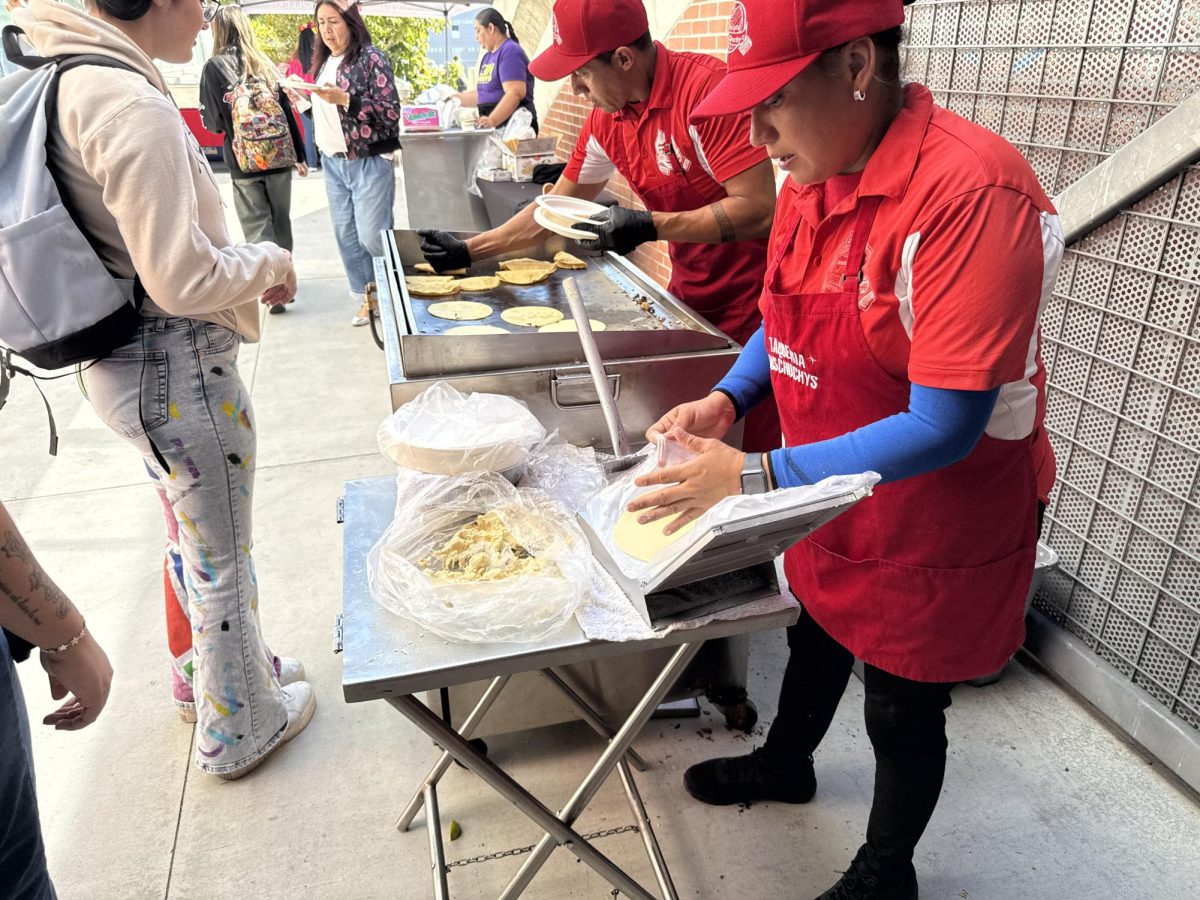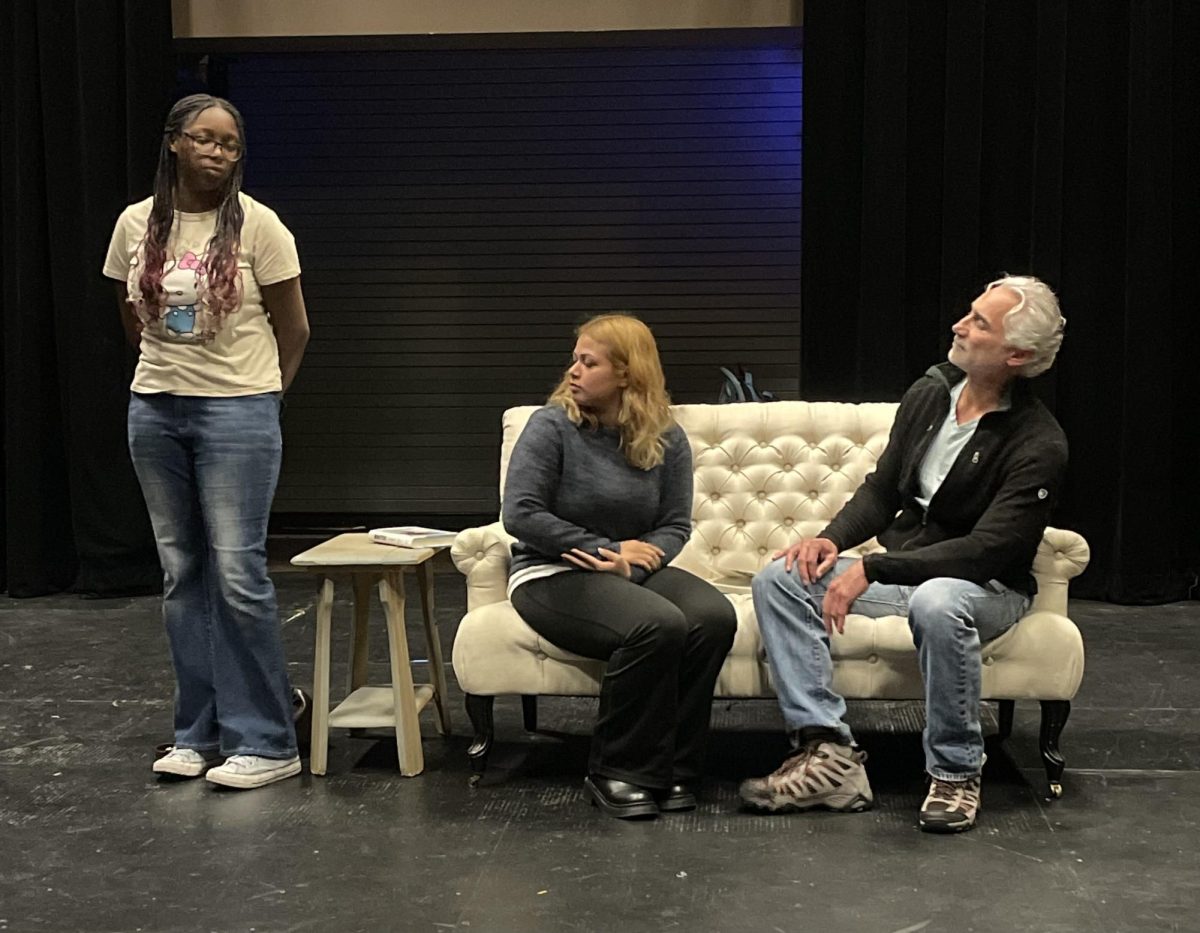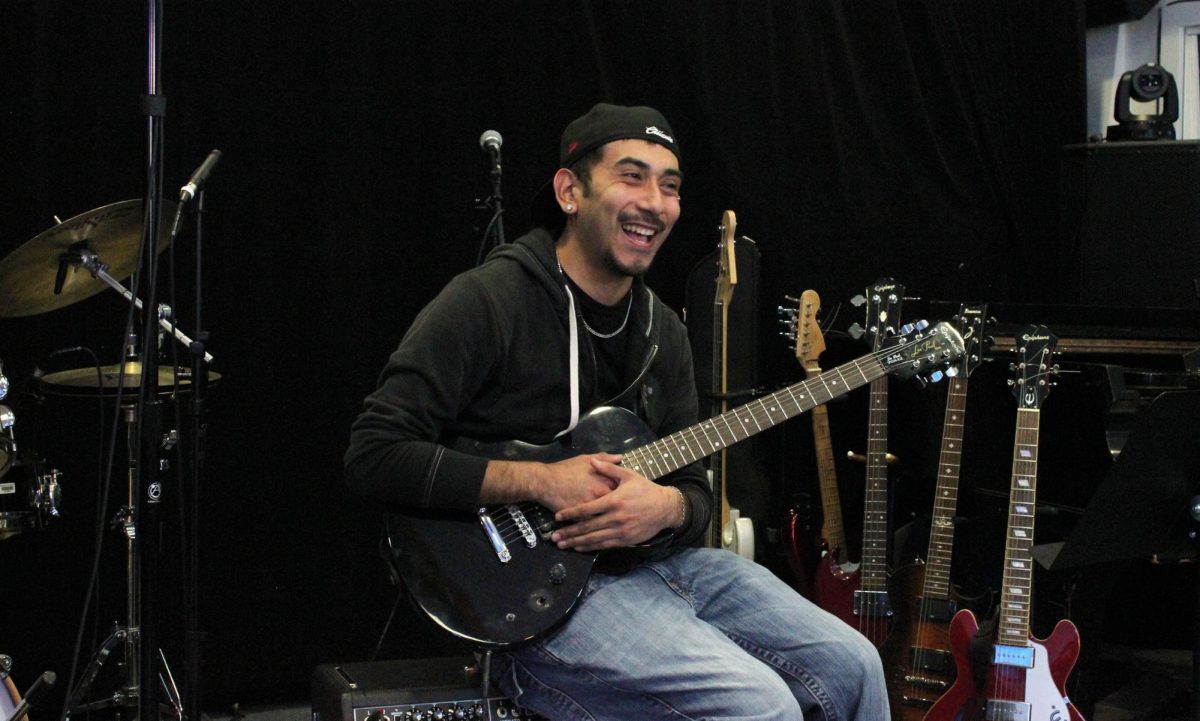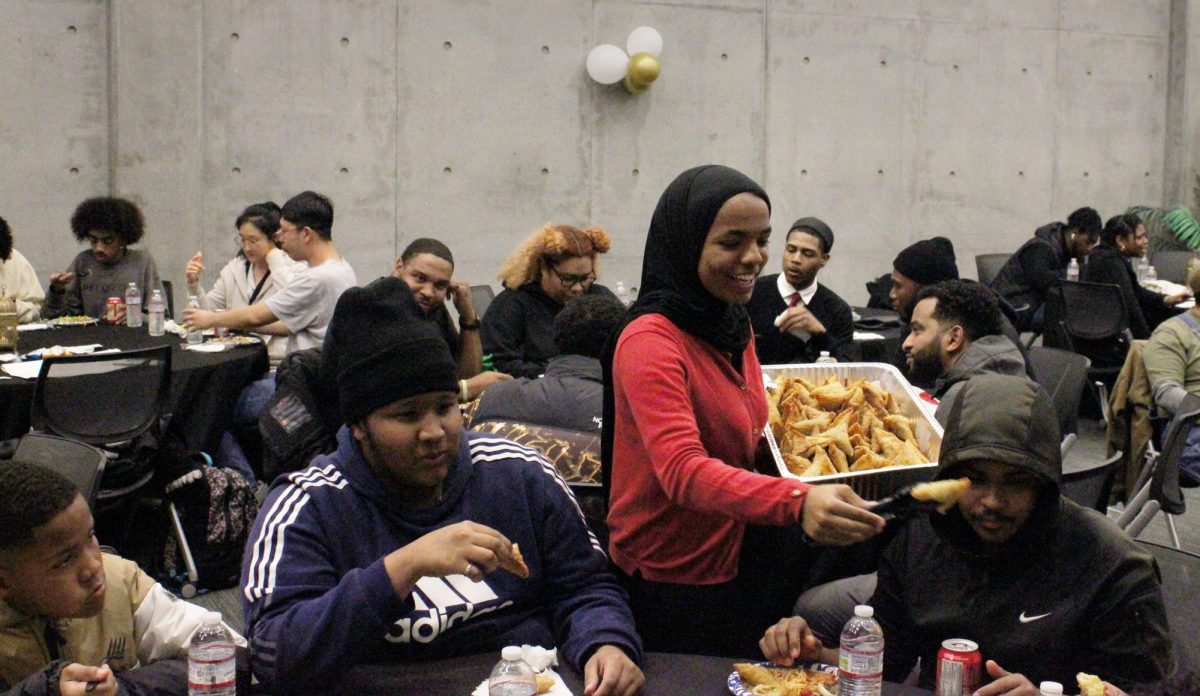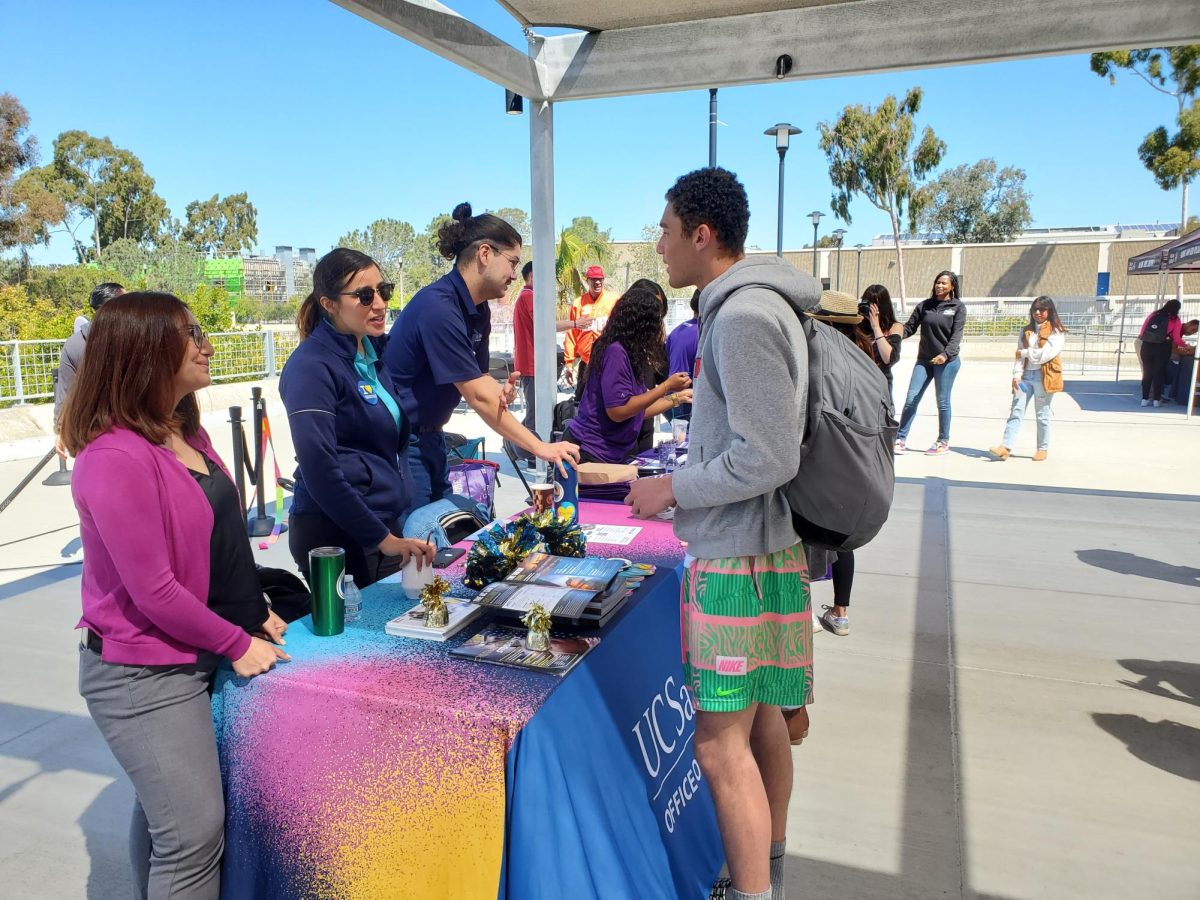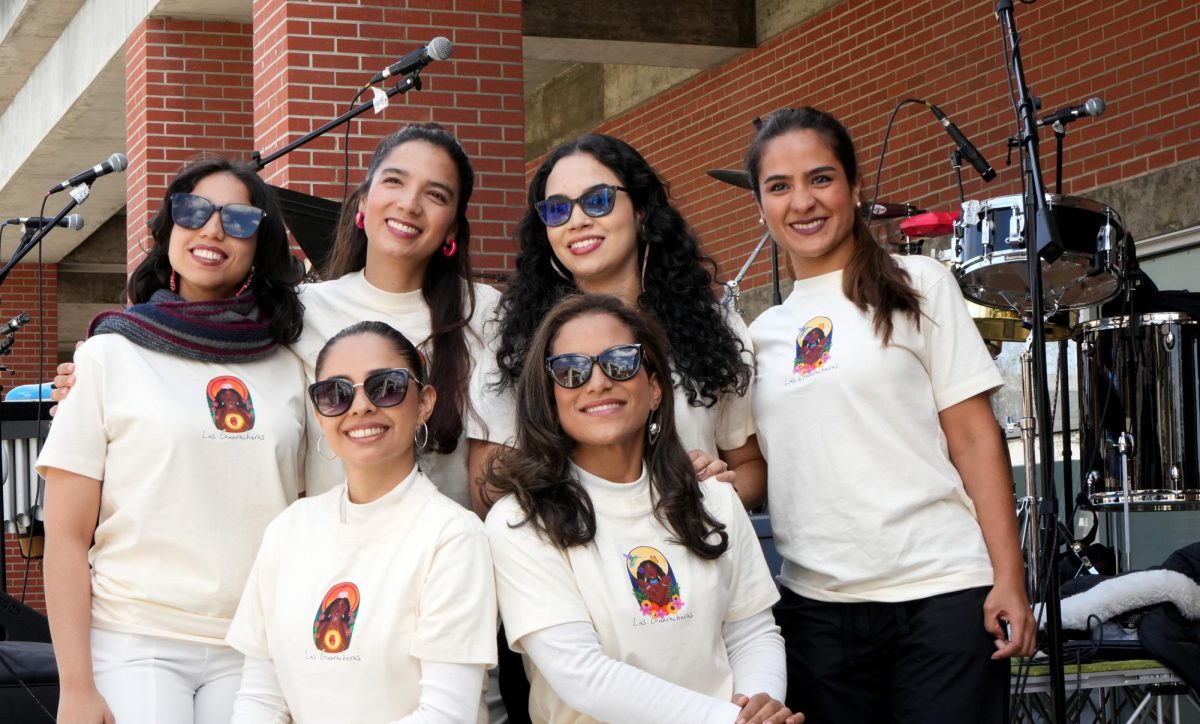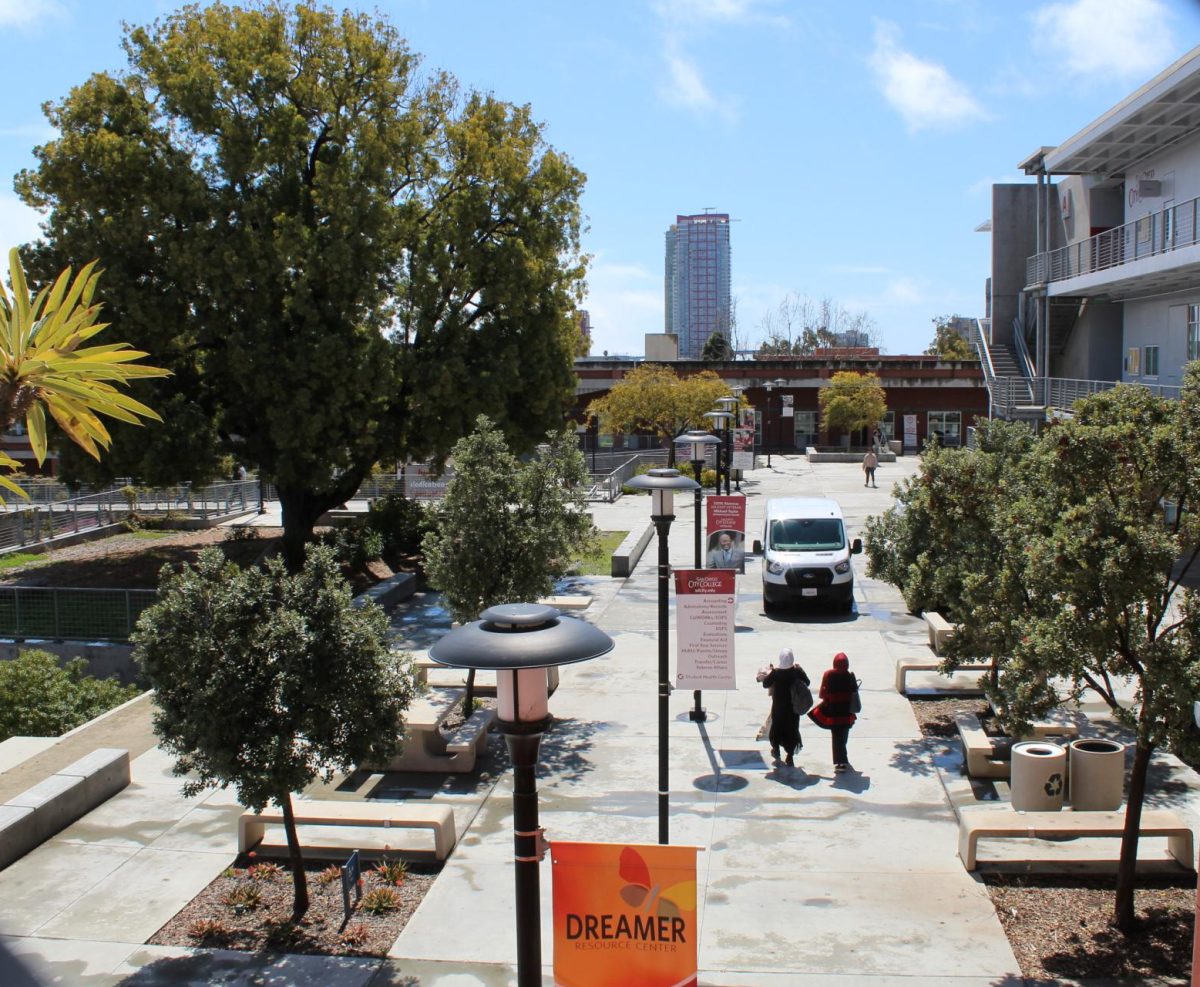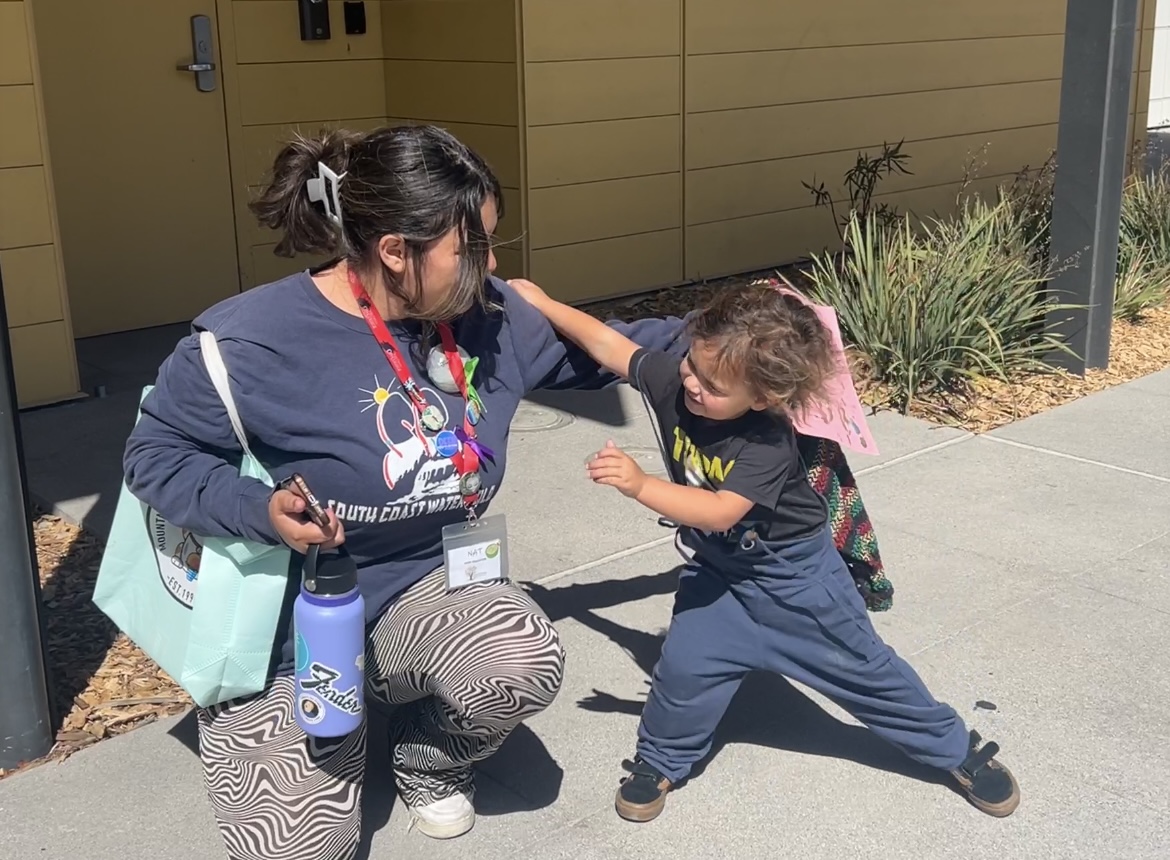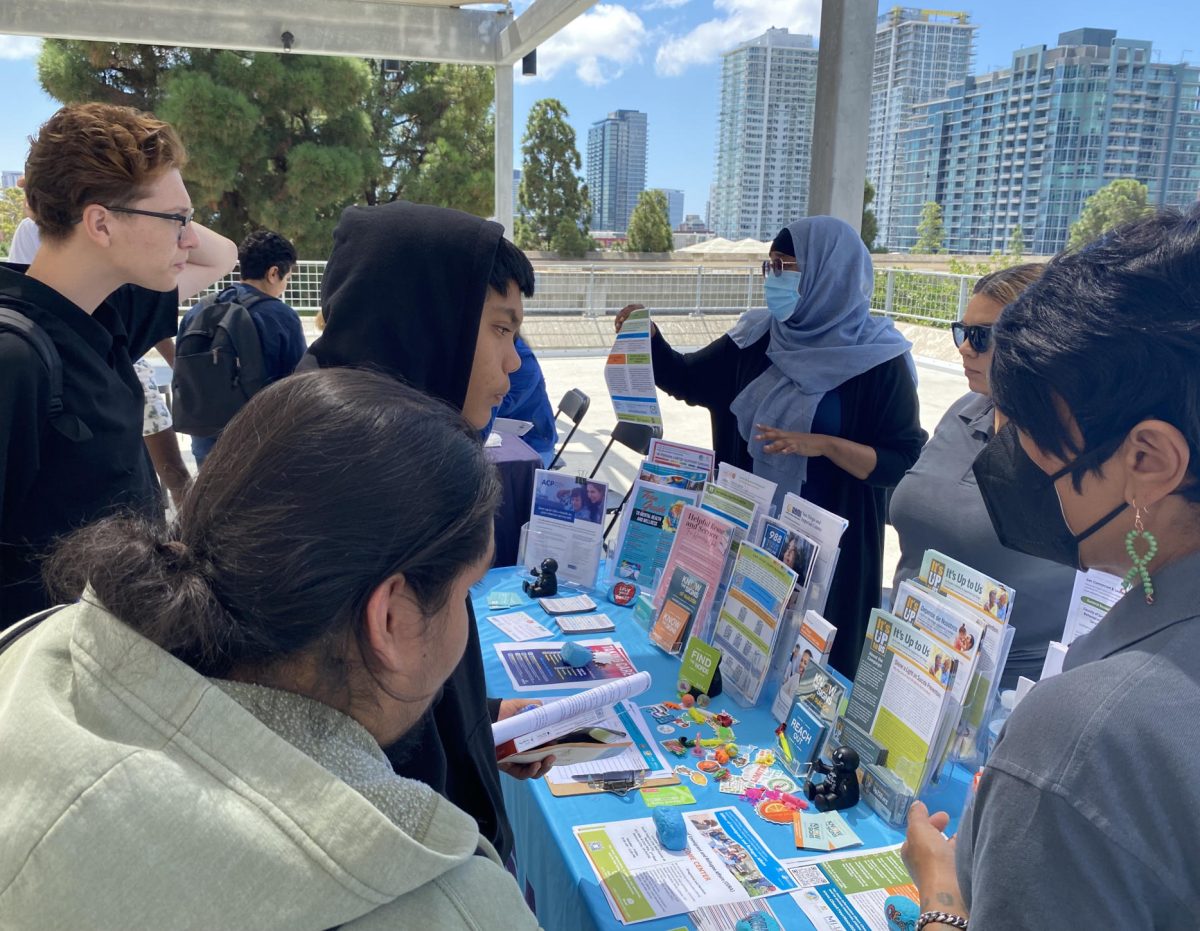Students and faculty filed into the T building Monday morning for a hands-on tortilla-making workshop hosted by Seeds@City and the Basic Needs Center.
The event, led by Javiar Flores, farm manager at the Seeds Urban Farm on campus, spotlighted the cultural and nutritional significance of maize through a traditional cooking process known as nixtamalization.
Flores demonstrated how to prepare maize through an ancestral method of boiling it in lye water, a method that unlocks nutrients and enhances texture. Attendees watched attentively and later joined in by washing, grinding and kneading the cooked maize into masa.
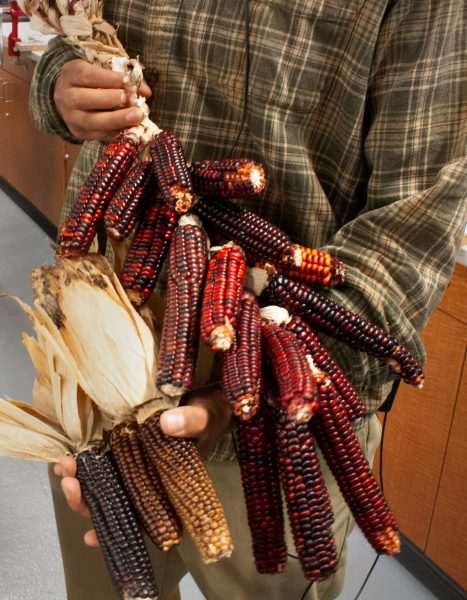
Flores spoke on the importance of eating naturally and ethically grown ingredients.
“It’s the only way we can control what goes into our body,” Flores said. “If we feed our body well, we have a strong mind and we’re healthier people.”
Participants eagerly took turns pressing tortillas and cooking them on a comal. As students grew more confident with each tortilla, the room filled with conversation, laughter, and the aroma of fresh corn.
The end result was homemade tortillas with toppings like frijoles, salsa, cheese, and guacamole.One student, Geraldine Jimenez, spoke on the quality of the food she made at the demonstration.
“You can definitely taste the difference,” Jimemez said. “You can feel the actual corn compared to masa you buy at the store. It’s so processed. And this, you can feel the chunks, and even the corn itself smells good.”
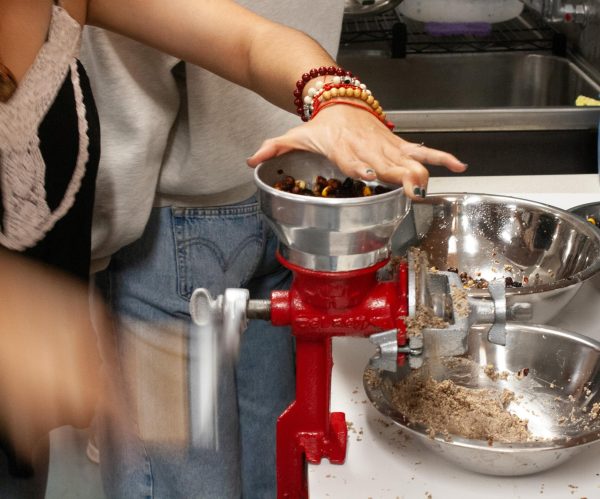
Jimenez said she hopes to see more workshops like this made available beyond the campus community.
“I feel like these are very important,” she said. “No one really teaches us how to create.”
At the end of the event, attendees were given bags of dry masa to take home, encouraging them to continue the tradition beyond campus.
The event was part of Seeds@City’s ongoing outreach to the campus community.
Flores encourages students to visit the weekly farm stand, held every Monday from 12:30 to 2:30 p.m., as a low-stakes way to connect, learn, engage with local food and the people who grow it.

